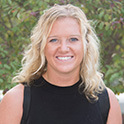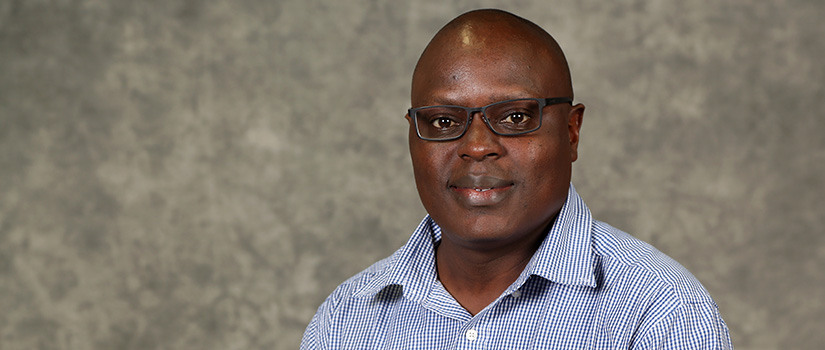Posted May 7, 2018
By Blaire Taylor, CIC graduate assistant
How do laws influence access to information? Do they enhance knowledge creation or
limit it? Can legal interpretation create information barriers for specific groups
or populations? These are questions that Dr. Dick Kawooya, an assistant professor in the School of Library and Information Science, explores
in his research.
Originally from Uganda, Kawooya came to the U.S. in 2001 as a graduate student. His
mentor, Professor Wallace Koehler, was tasked with starting a brand-new Master of
Library and Information Science program at Valdosta State University in Georgia, and
he invited his mentee to join the program’s inaugural class. Kawooya was drawn to
the field because he recognized that librarians played an important role in helping
people meet their needs.
“It was the idea that librarians are at the forefront in providing access to information
and preserving information and culture,” Kawooya said. “They make sure whatever anyone
has created is available to future generations.”
Initially, he didn’t plan on becoming a professor and staying in the U.S., but through
Koehler’s influence, Kawooya says the idea took hold. After completing his master’s
degree, his mentor helped him land a spot in the Ph.D. program at the University of
Tennessee. It was there that he discovered his love of teaching — and the difference
it allowed him to make.
“Just being in the classroom with students, I realized the influence you have as a
teacher,” Kawooya said. “I have a lot of graduate students who come in with questions
of trying to figure out their lives and where their implications are going to take
them. I realized this is a very important position to be in and you can actually have
an impact on people’s lives.”
Kawooya’s area of research lies in information policy, law and ethics. He is most
interested in how to minimize the legal and policy barriers to information access,
particularly focusing on the laws regulating intellectual property in Africa and developing
countries. International property rights have fostered innovations in the creation,
storage and communications of information, but they have also created barriers to
information access. This can constrain the services that libraries and other cultural
institutions provide. Areas with fewer resources, in particular, are affected by laws
that regulate information accessibility, highlighting the importance of research like
his when it comes to influencing policy changes.
“When you think about access to information in these parts of the world, it’s fair
to say that there are people who struggle to get the means to access information,”
he said. “For instance, a well-developed public library system is not true everywhere
in Africa.”
Digging deeper into his research area, Kawooya is currently exploring the legal barriers
for individuals with visual impairments. In 2008, he was selected as a member of the
African Union Expert Group that formulated one of the proposals that formed the basis
for the “Marrakesh Treaty to Facilitate Access to Published Works for Persons Who
are Blind, Visually Impaired or Otherwise Print Disabled.” This treaty is designed
to reduce or eliminate the “book famine” among the visually impaired, something that
he sees as a human rights and social justice issue.
“If a book is published today, it’s usually in digital or print form and available
instantly,” Kawooya says. “For folks who are visually impaired, that information is
not available instantly, so you can see the injustice.”
In order to change this, he is currently working with the World Blind Union and the
International Federation of Library Associations and Institutions on a multiyear research
and advocacy project on the implementation of the Marrakesh Treaty in developing countries
where those with visual impairment and print disabilities remain critically undeserved.
This summer, Kawooya will speak at the McNair Innovation and Free Enterprise Summit,
a forum that will explore topics such as blockchain technology, augmented reality,
the internet of things and artificial intelligence. He will share his research on
innovation and intellectual property in Africa under “The Global Perspective on Innovation
and Free Enterprise.”
Though Kawooya is making a difference by sharing his research globally, he finds that
his heart is in the work he does in the classroom.
“The most exciting part of my job is students who are willing to learn,” Kawooya says.
“The conversations are only supposed to last minutes, but they end up lasting hours.”

Blaire Taylor
Blaire Taylor is a first-year graduate communications student with an assistantship
in the web communications office of the college. She is working towards a career in
visual communications and public relations. Outside of school, she loves to travel
and explore.

